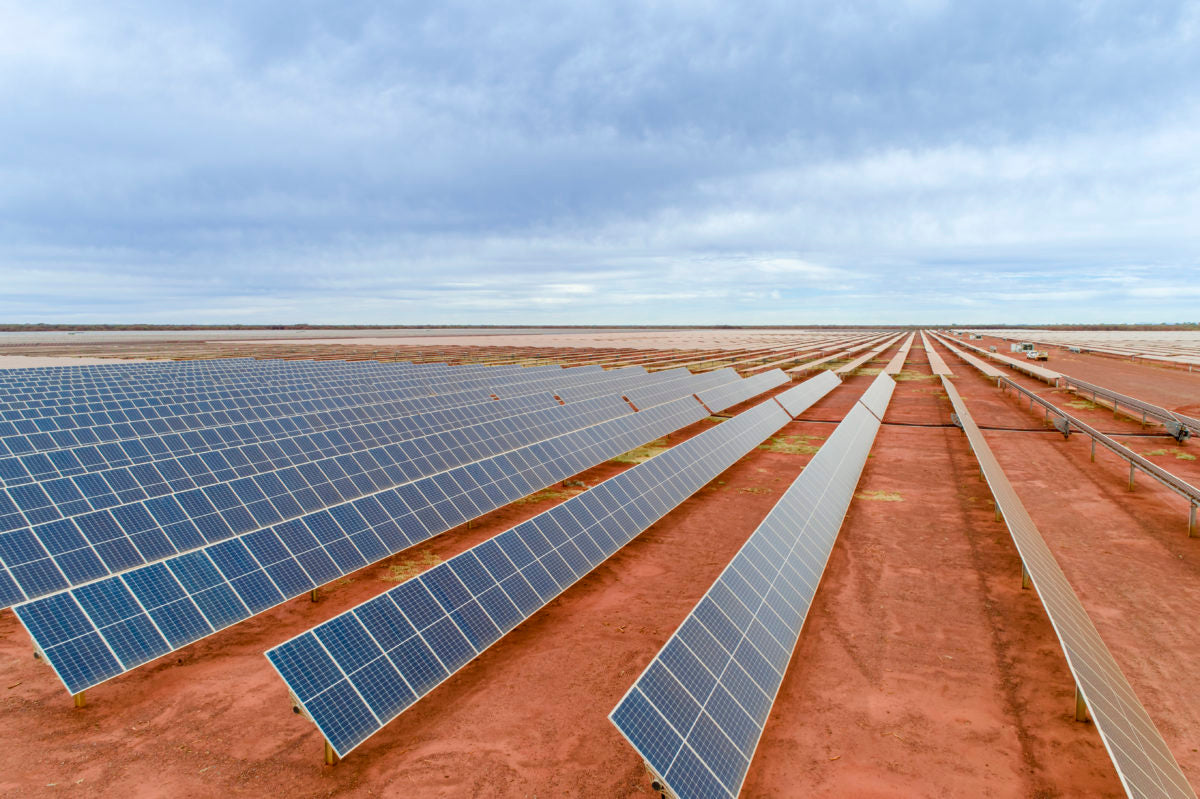https://www.pv-magazine-australia.com/2022/09/16/study-shows-switching-to-renewables-by-2050-would-save-world-trillions/

The study shows that for several decades the costs of solar PV, wind, and batteries have dropped at a rate near 10% per year.
Image: Fortescue
Described by the research team as a ‘win-win-win scenario’, the study shows that rapidly transitioning to renewable energy would result in lower energy system costs than a fossil fuel system, while also providing more energy to the global economy and expanding energy access to more people internationally.
The study’s ‘fast transition’ scenario shows a realistic possible future for a fossil-free energy system by about 2050, the researchers said, providing 55% more ‘energy services’ compared to today. This would be accomplished by ramping up solar, wind, batteries, electric vehicles, and clean fuels such as green hydrogen.
Lead author Dr Rupert Way, from Oxford University’s Smith School of Enterprise and the Environment, said past models predicting high costs for transitioning to zero carbon energy have deterred companies from investing, and made governments nervous about setting policies that will accelerate the energy transition and cut reliance on fossil fuels.
“But clean energy costs have fallen sharply over the last decade, much faster than those models expected,” he said. “Our latest research shows scaling-up key green technologies will continue to drive their costs down, and the faster we go, the more we will save.
“Accelerating the transition to renewable energy is now the best bet, not just for the planet, but for energy costs too.”

The researchers said they analysed thousands of transition cost scenarios produced by major energy models and used data on 45 years of solar energy costs, 37 years of wind energy costs and 25 years for battery storage.
They found the real cost of solar energy dropped twice as fast as the most ambitious projections in these models, at a rate approaching 10% a year, revealing that over the past 20 years previous models badly overestimated the future costs of key clean energy technologies versus reality.
Professor Doyne Farmer, from the Institute for New Economic Thinking at the Oxford Martin School, said there is a “pervasive misconception” that switching to clean energy will be costly.
“That’s just wrong,” he said. “Renewable costs have been trending down for decades. They are already cheaper than fossil fuels in many situations, and our research shows they will become cheaper than fossil fuels across almost all applications in the years to come.
“And, if we accelerate the transition, they will become cheaper faster. Completely replacing fossil fuels with clean energy by 2050 will save us trillions.”

Image: Oxford University
The study shows the costs for key storage technologies, such as batteries and hydrogen electrolysis, are also likely to fall dramatically.
“This study shows ambitious policies to accelerate dramatically the transition to a clean energy future, as quickly as possible, are not only urgently needed for climate reasons, but can save the world trillions in future energy costs, giving us a cleaner, cheaper, more energy-secure future,” Farmer said.
The research has been published in the journal Joule and is a collaboration between the Institute for New Economic Thinking at the Oxford Martin School, the Oxford Martin Programme on the Post-Carbon Transition, the Smith School of Enterprise & Environment at the University of Oxford, and SoDa Labs at Monash University.
This content is protected by copyright and may not be reused. If you want to cooperate with us and would like to reuse some of our content, please contact: editors@pv-magazine.com.
<




